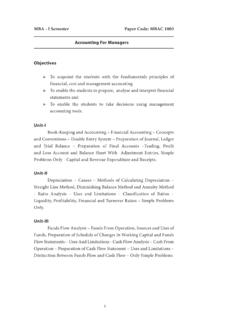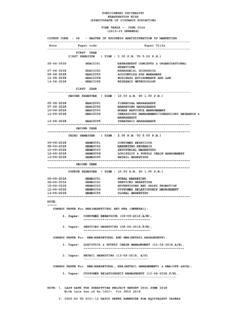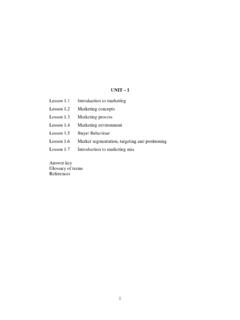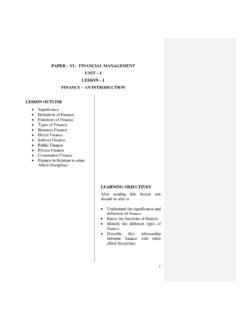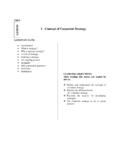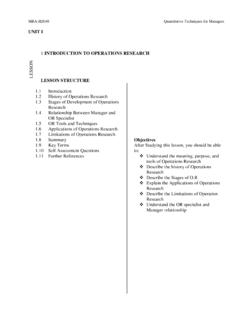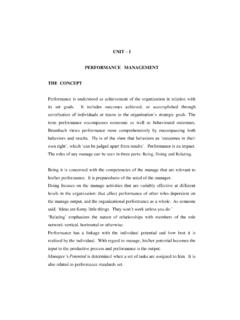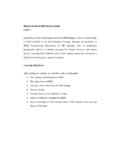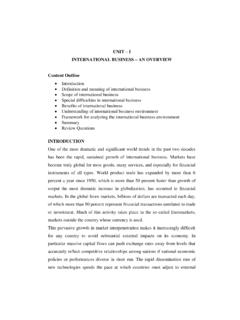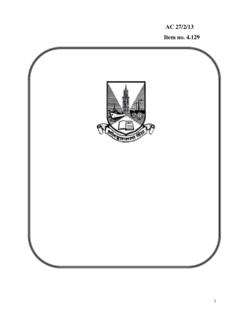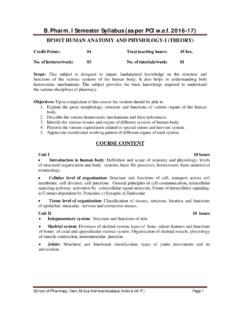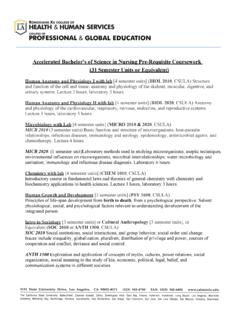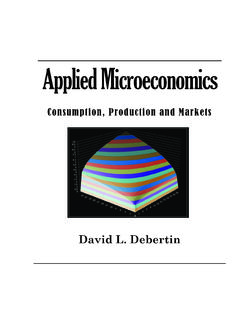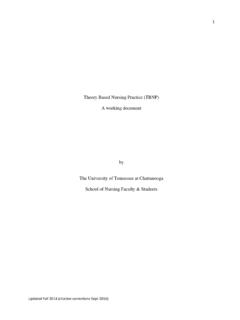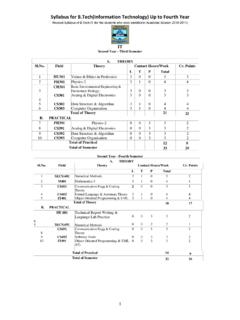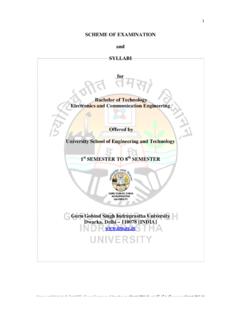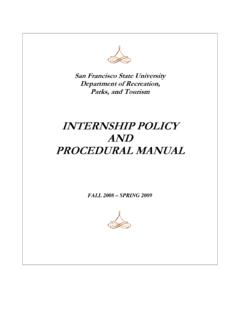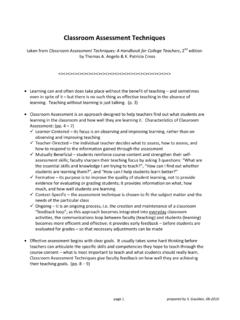Transcription of Research Methodology Objectives Unit-I
1 1 MBA-I Semester Paper Code: MBAC 1005 Research Methodology Objectives To Enable The Students To Know About The Information Needs Of Management To Introduce The Concept Of Scientific Research And The Methods Of Conducting Scientific Enquiry And To Introduce The Statistical Tools Of Data AnalysisUnit-I Research Qualities of Researcher Components of Research Problem Various Steps In Scientific Research Types of Research Hypotheses Research Purposes - Research Design Survey
2 Research Case Study Data Collection Sources of Data Primary Data Secondary Data - Procedure Questionnaire Sampling Methods Merits and Demerits Experiments Observation Method Sampling Errors - Type-I Error & Type-II Statistical Analysis Introduction To Statistics Probability Theories Conditional Probability, Poisson Distribution, Binomial Distribution and Properties of Normal Distributions Hypothesis Tests One Sample Test Two Sample Tests / Chi-Square Test, Association of Attributes - Standard Deviation Co-Efficient of Variations.
3 Unit-IV Statistical Applications Correlation and Regression Analysis Analysis of Variance Partial and Multiple Correlation Factor Analysis and Conjoint Analysis Multifactor Evaluation Two-Factor Evaluation Research Reports Structure and Components of Research Report Types of Report, Characteristics of Good Research Report, Pictures and Graphs, Introduction To SPSS.[Note: Distribution of Questions between Problems and Theory of this paper must be 40:60 , Problem Questions: 40 % & Theory Questions: 60 %] REFERENCES Panneerselvam, R.
4 , Research Methodology , Prentice hall of India, New Delhi, 2004. Kothari CR, Research Methodology -METHODS AND TECHNIQUES, New Wiley Eastern ltd., Delhi, 2009. **3 UNIT IIntroductionLearning Objectives :After reading this lesson, you should be able to understand: Meaning, Objectives And Types Of Research Qualities Of Researcher Significance Of Research Research Process Research Problem Features, Importance, Characteristics, Concepts And Types Of Research Design Case Study Research Hypothesis And Its Testing Sample Survey And Sampling Methods Meaning Of Research .
5 Research in simple terms refers to search for knowledge. It is a scientific and systematic search for information on a particular topic or issue. It is also known as the art of scientific investigation. Several social scientists have defined Research in different ways. In the Encyclopedia of Social Sciences, D. Slesinger and M. Stephension (1930) defined Research as the manipulation of things, concepts or symbols for the purpose of generalizing to extend, correct or verify knowledge, whether that knowledge aids in the construction of theory or in the practice of an art.
6 According to Redman and Mory (1923), Research is a systematized effort to gain new knowledge . It is an academic activity and therefore the term should be used in a technical sense. According to Clifford Woody (kothari, 1988), Research comprises defining and redefining problems, formulating hypotheses or suggested solutions; collecting, organizing 4and evaluating data; making deductions and reaching conclusions; and finally, carefully testing the conclusions to determine whether they fit the formulated hypotheses.
7 Thus, Research is an original addition to the available knowledge, which contributes to its further advancement. It is an attempt to pursue truth through the methods of study, observation, comparison and experiment. In sum, Research is the search for knowledge, using objective and systematic methods to find solution to a Objectives Of Research : The objective of Research is to find answers to the questions by applying scientific procedures. In other words, the main aim of Research is to find out the truth which is hidden and has not yet been discovered.
8 Although every Research study has its own specific Objectives , the Research Objectives may be broadly grouped as follows:1. To gain familiarity with new insights into a phenomenon ( , formulative Research studies);2. To accurately portray the characteristics of a particular individual, group, or a situation ( , descriptive Research studies);3. To analyse the frequency with which something occurs ( , diagnostic Research studies); and4. To examine the hypothesis of a causal relationship between two variables ( , hypothesis-testing Research studies).
9 Research Methods Versus Methodology : Research methods include all those techniques/methods that are adopted for conducting Research . Thus, Research techniques or methods are the methods that the researchers adopt for conducting the Research studies. on the other hand, Research Methodology is the way in which Research problems are solved systematically. It is a science of studying how Research is conducted scientifically. Under it, the researcher acquaints himself/herself with the various steps generally adopted to study a Research problem, along with the underlying logic behind them.
10 Hence, it 5is not only important for the researcher to know the Research techniques/methods, but also the scientific approach called Research Approaches: There are two main approaches to Research , namely quantitative approach and qualitative approach. The quantitative approach involves the collection of quantitative data, which are put to rigorous quantitative analysis in a formal and rigid manner. This approach further includes experimental, inferential, and simulation approaches to Research .
